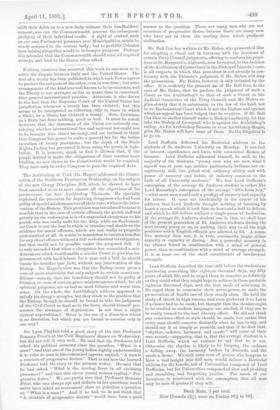Lord Dufferin described the time still before the students as
numbering something like eighteen thousand days, say fifty years, of adult life, and he urged them to conceive as definitely as they could what they might hope to achieve in those probable eighteen thousand days, and the best mode of achieving it. He urged them to economise their nerve-power, to make the preservation of health one of their steady aims. He held the study of Greek in high esteem, and even preferred it to Latin if a choice had to be made, but thought that the classics ought to be studied as modern languages are studied, if they are to be really turned to the best literary effect. He did not think any conscious effort at style should be made, but rather that every man should conceive distinctly what he has to say, and should say it as simply as possible, and that if he does that, "rhythm, cadence, harmony, and music" will come of their own accord,—supposing, that is, that the average student is a Lord Dufferin, which we venture to say that he is not. Otherwise the rhythm is likely to be limping, the cadence a falling away, the harmony broken by discords, and the music a drone. We wish some man of genius who happens to have a real insight into dull men, would deliver a Rectorial address for the benefit, not of Universities composed of Lord Dnfferins, but for Universities composed of slow and plodding and stumbling and forgetting youths. Too much of our literature is penetrated with the assumption that all men may be men of genius if they will.


































 Previous page
Previous page